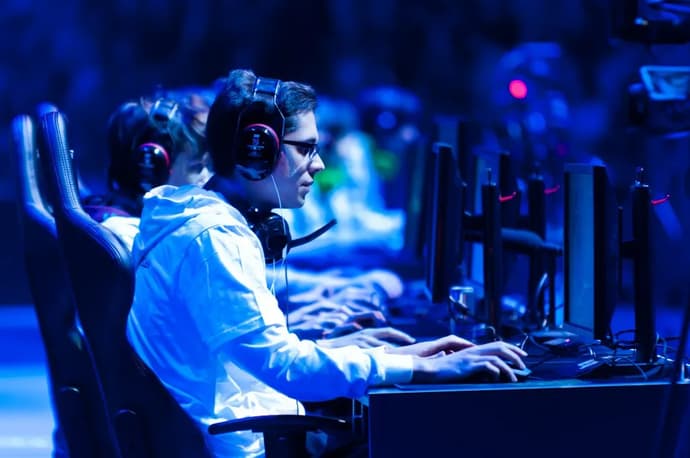
RNG: Ruining Esports or Making Them More Exciting?

Random Number Generation (RNG) has been central to esports controversies. It has always been a game design aspect of games, but the way it influences competitive results creates controversies regarding fairness, skill, and entertainment.
While it has been referred to as being a threat towards game integrity, other individuals believe it adds fun and unpredictability for spectators.
What is RNG?
An RNG is a generator of unpredictable results. In game design, it controls things players have little influence over, such as critical hits, item dropping, or damage randomness. The vast majority of games employ pseudo-random number generators, algorithms that approximate randomness within predetermined probabilities.
Though RNG is prevalent in informal gaming, it is more contentious in competition. With esports, where careers and money go on the line and the outcome hinges on careers and money, anything as slight as chance has an effect.
The Importance of RNG in Esports
RNG occurs within competing titles of more than one genre. In online card titles such as Hearthstone, the ability to draw the proper card at the correct moment can end up deciding victory.
In battle royale game titles such as Fortnite or PUBG, the RNG dictates the allocation of loot and safe zone layout and has players adapt within different circumstances. Even within fighting titles, imperceptible instances of RNG will exist within damage variation or ability characteristics.
Game designers frequently incorporate RNG to avoid matches feeling overly repetitive and facilitate adaptability. This unpredictability may drive competitors to formulate more universal strategies rather than one fixed game plan.
How RNG Impacts Results
The effect of RNG can be game-changing. Skill expression in esports is very high. As such, even slight events of RNG can shift momentum. For instance:
- Card Games: A best hand might lose as one's strongest card might appear late due to chance-related reshufflings.
- Battle Royales: A player landing into a low loot spot might already be at a disadvantage prior to entering into battle.
- MOBA Games: In MOBAs like Dota 2, pseudo-random mechanisms affect critical hits, evasion, and spawnings of runes, at times leading to situations where chance dominates decision-making.
This impact creates debates about fairness. Critics believe that game results in esports should be influenced primarily by skill, preparation, and game choices and not by variables outside of a player's control.
Supporters counter that navigating through RNG itself is a skill as overall better players will find ways of nullifying the influence of randomness through the implementation of clever positioning, risk management, and adaptability.
RNG as a Design Decision
Developers incorporate RNG as a deliberate balancing and revenue method. If there is no randomness, matches might grow predictable and reduce replayability and entertainment value. Randomness will level the playing field until a certain point and allow underdogs the chance of upsets against higher-ranked competition.
But the interplay between randomness and skill must be closely balanced. If an RPG has too much RNG it feels "coin-flip" and unfair. If it has too little it becomes stale where efficiency is king and all else follows and gameplay becomes predictable.
Competitive Integrity and Viewer Experience
From the player's perspective, RNG is annoying—it happens at the worst times and will ruin hours of preparation in big-buck tourneys.
From a viewer's perspective, it makes for exciting television. Unanticipated incidents and unusual moments tend to go viral as highlights. Telecasters exploit these incidents for increasing audience interaction while experts wonder if they damage competition validity.
Expert Views
The industry of esports continues to be divided. While some developers argue in favor of defending RNG in terms of game depth and replayability, numerous players support limiting randomness within competition.
According to the experts at White Lotto, perceptions of RNG tend to rely on either entertainment versus fairness. While in markets of viewer-demand-based competition, randomness might be viewed as necessary toward maintaining interest.
Striking the Right Balance
Balancing RNG and skill is an ongoing challenge. Potential solutions include:
- Tournament rules which minimize high-impact randomness.
- Improved algorithms to prevent extreme streaks of good or bad luck.
- Best-of series models to reduce the effect of an occasional random event.
Individual genres require specific balances, but all must be kept balanced and fair.
Competitive Fairness and Viewer Experience
From the viewpoint of competition integrity, RNG could be controversial. Luck-based outcomes in pressure-packed games with huge purses may enrage those players feeling as though they played better overall and lost on a capricious whim of chance. That enmity is more pronounced where the match outcome depends on one chance event following hours of preparation.
Conversely, for fans watching the competitions, RNG has the ability to create iconic moments that go into esports lore. Upsets, unusual occurrences, and unexpected wins tend to go viral and gain popularity outside of the typical competitive fan base.
Neither purely good nor purely bad for esports, RNG provides exciting moments of unpredictability and drama that draw spectators but frustrate players seeking consistently skill-based outcomes. Future reality probably lies in refining the dynamics in matches while guaranteeing that championships don't come down to simple randomness.

Kateryna Prykhodko ist eine kreative Autorin und zuverlässige Mitarbeiterin bei EGamersWorld, die für ihre fesselnden Inhalte und ihre Liebe zum Detail bekannt ist. Sie kombiniert Storytelling mit klarer und durchdachter Kommunikation und spielt eine große Rolle sowohl bei der redaktionellen Arbeit der Plattform als auch bei der Interaktion hinter den Kulissen.
 Märchen: Rezept & Anleitung zum RucksackbastelnHier findet ihr eine Anleitung, wie ihr in Hytale einen Rucksack herstellen könnt, der euer Inventar für größere Abenteuer in Orbis erweitert.
Märchen: Rezept & Anleitung zum RucksackbastelnHier findet ihr eine Anleitung, wie ihr in Hytale einen Rucksack herstellen könnt, der euer Inventar für größere Abenteuer in Orbis erweitert. Roblox Anime Guardians Codes Februar 2026Entdecken Sie alle funktionierenden Roblox Anime Guardians Codes. Löse sie für kostenlose Mystic Coins, Trait Rerolls, Artefakte und Belohnungen ein.
Roblox Anime Guardians Codes Februar 2026Entdecken Sie alle funktionierenden Roblox Anime Guardians Codes. Löse sie für kostenlose Mystic Coins, Trait Rerolls, Artefakte und Belohnungen ein. Nicht-britische Online-Casinos: Spiele, Formate, und was Spieler erwarten könnenOnline-Casinos, die außerhalb des britischen Glücksspielrahmens operieren, ziehen die Aufmerksamkeit auf sich, da sie sich in ihren Lizenzierungsmodellen, Spielportfolios und Werbeaktionen unterscheiden...
Nicht-britische Online-Casinos: Spiele, Formate, und was Spieler erwarten könnenOnline-Casinos, die außerhalb des britischen Glücksspielrahmens operieren, ziehen die Aufmerksamkeit auf sich, da sie sich in ihren Lizenzierungsmodellen, Spielportfolios und Werbeaktionen unterscheiden... Bitcoin-Casinos und Krypto-Glücksspielplattformen für britische SpielerKrypto-basierte Glücksspielplattformen haben sich zu einem beachtlichen Segment des globalen Online-Casino-Marktes entwickelt.
Bitcoin-Casinos und Krypto-Glücksspielplattformen für britische SpielerKrypto-basierte Glücksspielplattformen haben sich zu einem beachtlichen Segment des globalen Online-Casino-Marktes entwickelt.





